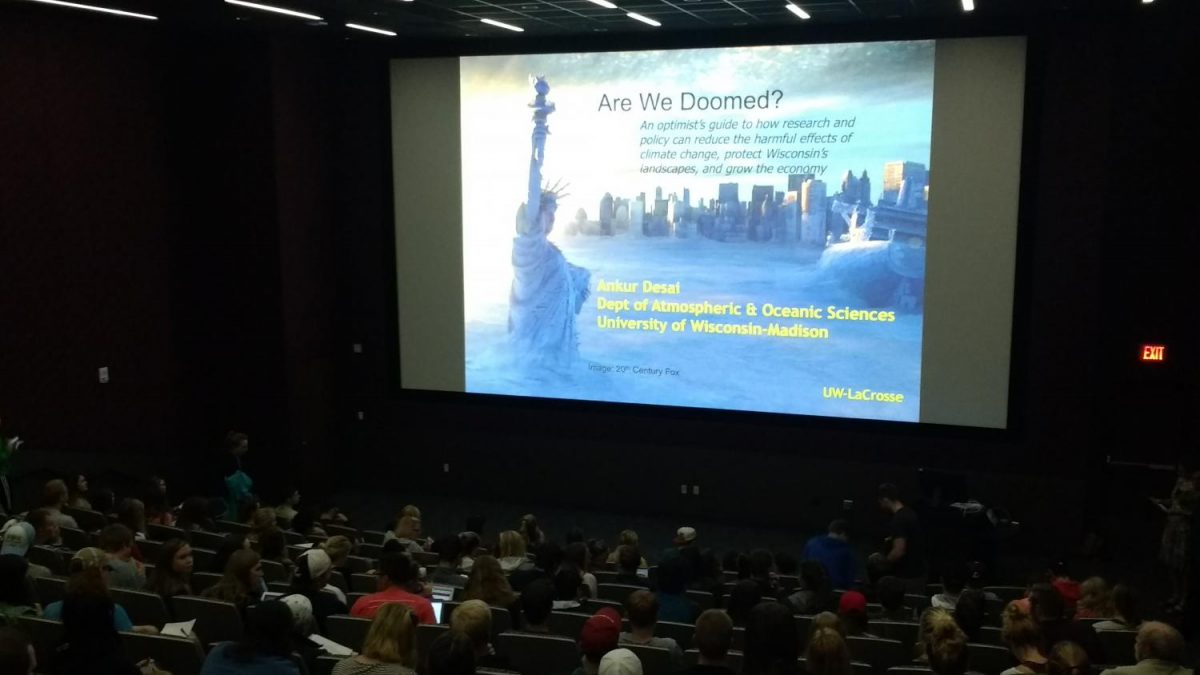A Look at the Change You Might Not See
October 6, 2017
“Are We All Doomed? An optimists guide to how research and policy can reduce the harmful effects of climate change” was a presentation by UW-Madison Professor Ankur Desai on Tuesday, Oct. 3 in the Student Union Theatre.
Desai covered topics ranging from what climate change is all the way to what we can do now to help fight against it. Using research conducted by him and his team, Desai discussed with the audience the effects of climate change and how we can begin to notice it today.
How can we tell if climate change is real? One way that Desai and his team analyze climate change is through plants. “Our lab looks at how plants respond to change in climate and how they then feedback and change climate themselves,” Desai says. “We have a range of projects on that.”
Diving into what climate is, Desai states three things about climate including: “Climate is the average of weather, climate changes naturally, and the study of climate change is well-established. We know how climate changes and what is mostly causing current change.”
Despite the research, however, there are still some who don’t believe in climate change. “In fact, most of the climate denial is coming from a small number of voices,” Desai says. “There is some uncertainty about climate, but it’s not as much as it’s made out to be.”
There is a large portion of individuals who are willing to believe in the research. In a chart shown by Desai from climateoptimist.org, 40 percent of individuals are “Soft Optimists,” 16 percent are “Strong Optimists,” and only four percent are “Deniers.”
“Ultimately, if you want to be an engaged citizen, then you have to take a stand in the decision you make,” Desai states. “Some things are inevitable, you’re going to have to decide how much energy you use, what kind of car are you going to drive, how are you going to insulate your house, and if you’re being mindful of those choices, even if they are small things, then you are doing your part.”
“I think the more that a person knows about any subject the better. Even if people don’t believe in climate change, knowing more about the field can help broaden their mindset,” UWL Senior Dan Finke comments. “Climate change is something that is going to affect everyone, no one will be exempt from its effects so I think that is another reason to learn more.”
Whether you believe in climate change or not, UWL Junior Takala Polster says, “I would encourage anyone, even non-believers, to attend events such as this. It won’t hurt to hear what people have to say.”
If you missed this event, there’s no need to worry. You can find Desai’s presentation used at the event as well as his research and past presentations on his website by following this link: http://flux.aos.wisc.edu/twiki/bin/view/Main/LabPresentations. No matter your view, it is important to take a look at the other side. In the words of Desai, “If not you, then who?”






